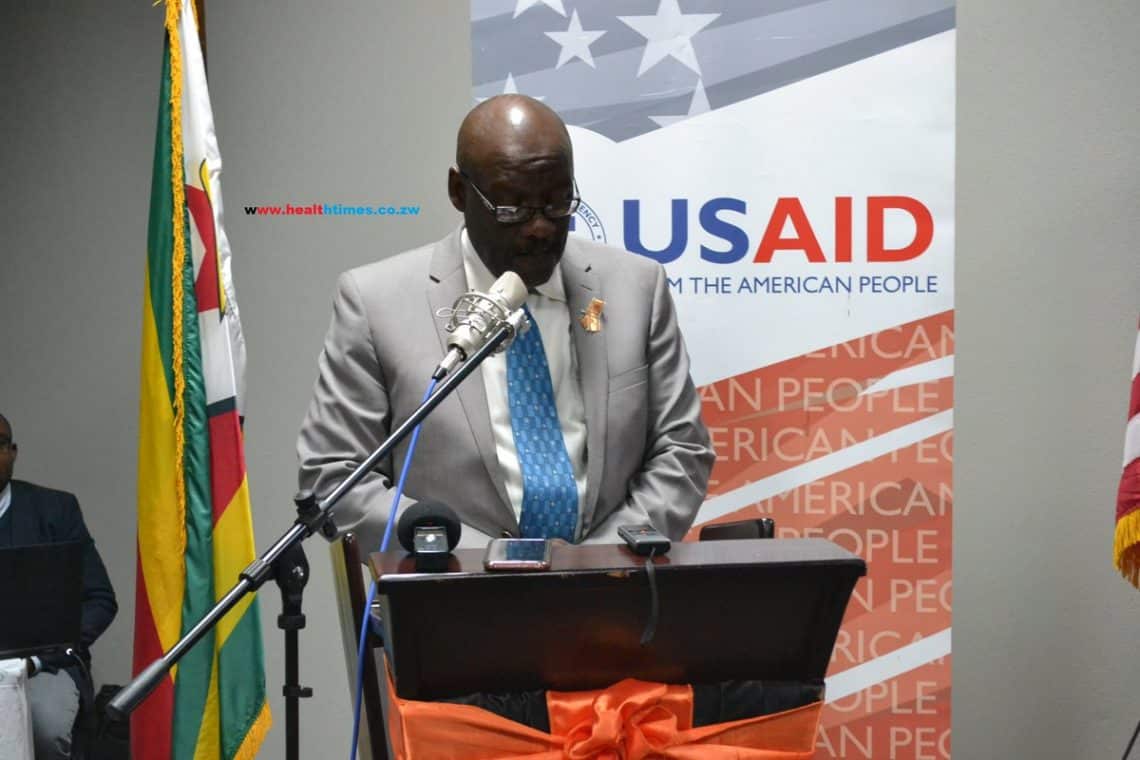By Byron Mutingwende
The United States Agency for International Development (USAID) has launched the five-year $25 million Mhuri/Imuli Project that will provide technical assistance for integrated maternal newborn child health and family planning to the ministry of health and child care (MOHCC).
In his remarks at the launch, David Parirenyatwa, the minister of health and childcare said the funding would go a long way in assisting the ministry to provide the highest possible level of health care and quality life for Zimbabwean citizens.
“The Ministry of Health and Child Care has the mandate to provide the highest possible level of health care and quality life for all its citizens. This is only possible through the combined efforts of individuals, communities, and contributions and participation, of a myriad of stakeholders, involved in both financing and providing technical support for the improved delivery of health services nationwide. For this reason, I would like to warmly welcome the Mhuri/Imuli project as an essential partner of the MOHCC, and to appreciate USAID for their consistent collaboration over the years,” Parirenyatwa said.
A 19-year old mother of two from Manicaland, Emily Mkwananzi testified that such projects would go a long way in advancing family planning to adolescent girls and young women like her who often goes through hardships of getting into early marriages without adequate knowledge about family planning.
“I grew up on the farm and was orphaned. When I finished my Ordinary Level studies, I got married and had two children before I turned 18. As a young and inexperienced mother, I endured abuse in marriage. Thanks to programmes by USAID and the relief arm of the Catholic Church in Manicaland, I got education about my sexual reproductive health rights. Now I am a determined, resilient, empowered, safe and free young woman,” Mkwananzi said.
Dr. Munyaradzi Mukuzunga, the Acting Manicaland Provincial Medical Director called for the the strengthening and continuation of a good partnership, building on the investments that USAID has made in Manicaland Province.
“As I look back at the era when our maternal, newborn and child mortality was among one of the highest in the world, I also look at the journey that the country has taken and take pride of the reductions made to maternal, newborn and child mortality.
“I would like to inform on the contributions that Manicaland Province has made to these achievements. Through the partnership with the Maternal and Child Health Integrated Programme (MCHIP) maternal, newborn and child mortality was reduced at 36 high burdened sites. 43% reduction in maternal deaths, 36% reduction in neonatal deaths and 25% reduction in under 5 deaths were seen in 36 USAID supported sites between 2014 and 2017,” Mukuzunga said.
He paid tribute to the result-based financing programming, and good support from partners such as UNICEF, UNFPA, WHO, CORDAID, CHAI, Plan International and others towards the improvement of maternal and child health.
Stephanie Funk, the USAID Mission Director for Zimbabwe said there was need to focus on the health of the entire family network on high quality maternal, newborn, child health care as well as family planning services.
“Family planning saves lives and it empowers women and their partners to make informed decisions that will improve the quality of their lives. I met women in Matebeleland North whose lives changed when USAID brought family planning to their doorstep. They simply said access to family planning gives them control that empowers them to plan their lives,” Funk said.
Over the last seven years, USAID and its partners have made impressive progress improving the lives of more than 700 000 women and over 1, 5 million babies in Zimbabwe.
Mhuri/Imuli will build on these achievements by strengthening the skills and knowledge of health care workers, bolstering community health systems, and integrating maternal and child health services with reproductive health care. It will improve the health of mothers and children in seven districts of Manicaland by increasing access to high quality health services, from the home to the community, primary care facilities, and hospitals.
In total, the USAID programme will make available critical health services to approximately 1, 75 million people in Manicaland, including hard to reach areas, said Mhuri/Imuli Programme Chief of Party, Dr. Angela Akol.
Despite recent advances, Zimbabwe still struggles with high levels of maternal and child deaths. The 2015/2016 Zimbabwe Demographic Health Survey (ZDHS) demonstrated a reduction in maternal mortality since 2010, from 960 to 651 deaths per 100 000 live births, and in under-5 mortality from 84 to 69 per 1 000 live births. Manicaland Province has the worst health outcomes for children in the country, with one in 10 dying before the age of five.
